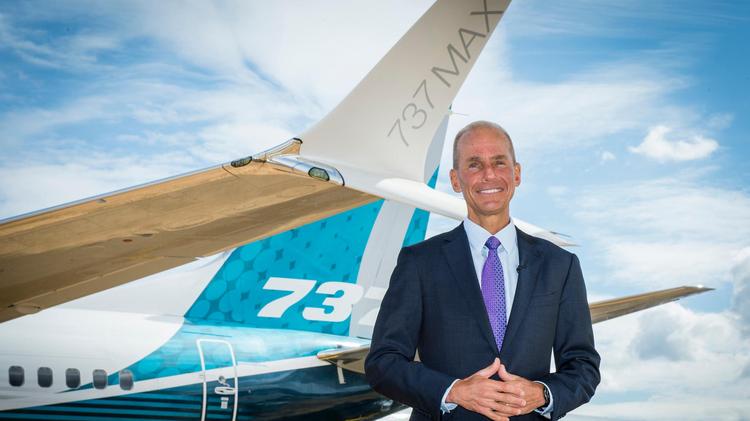
The Boeing (BA) 737 MAX 8 crisis has cost a lot for
everyone: passengers, airlines, pilots, and the company itself. Most recently,
CEO Dennis Muilenburg lost his job as chair of the company’s board, as the
board felt he needed to actively focus on getting the 737 MAX back in the
skies. He conceded the post to Boeing board member David Calhoun.
Muilenberg is scheduled to appear before Congress for
testimony regarding the 737 MAX’s safety on October 30. Not getting the planes
back in the skies before the end of the year could also put his position as CEO
in danger.
Boeing 737 MAX return worries
Muilenberg’s losing his seat as chair may be a sign that
things aren’t going too well with the 737 MAX’s return. Boeing has made several
organizational changes lately to improve oversight. However, the board asking
the CEO to focus on the plane’s recertification is the biggest sign of them
all.
The 737 MAX planes have been grounded for over seven months
since the Ethiopian Airlines Flight 302 crash that killed 157 people on board.
Boeing took on a $5.6 billion pretax charge for penalties due to the grounding
in the second quarter alone. It’s losing over $1 billion every month due to the
grounding of the 737 MAX 8 planes. Its stock has lost 11.3% since the March 10
crash of Flight 302.

Boeing 737 MAX 8 crisis: Airlines and pilots suffer
The grounding has been costing airlines and pilots too.
Airlines have had to cancel thousands of flights in the aftermath of the 737
MAX 8 grounding. On October 11, United Airlines (UAL), which has 14 737 MAX 8s
in its fleet, extended the grounding until next year. By then, United Airlines
will have canceled over 10,000 flights since the crisis began in March.
With 34 planes, Southwest Airlines (LUV) holds the largest
fleet of 737 MAX 8s in the US. Southwest has canceled over 30,000 flights since
March due to the grounding. Earlier this month, the Southwest Airlines Pilots
Association sued Boeing for loss of income and breach of trust. The company
doesn’t expect the plane to be back in service until January 5.
American Airlines (AAL) owns 24 Boeing 737 MAX 8s. It
canceled 7,800 flights in the second quarter alone, and it expects the
grounding to continue into next year. American expects to cancel 140 flights
per day starting in November.
MAX 8 grounding side effects
Boeing and many airlines have suffered the side effects of
the delay in the 737 MAX 8’s return to the skies. Boeing has kept its midrange
project, dubbed the 797, on hold until the 737 MAX 8’s issues are resolved.
This may push some loyal Boeing customers to look at Airbus’s (EASDY) A321XLR
as an option.
On the airlines front, those who hold 737 MAX 8s have
conceded some of their market share to those who don’t. Delta Air Lines (DAL)
has reaped the benefits of the 737 MAX 8 crisis, as the company doesn’t have
any of those jets in its fleet. Last week, Delta reported its third-quarter
earnings results as well as its outlook for the fourth quarter. Delta saw
strong revenue growth in the US at 7.8% as passengers switched to Delta amid
the 737 MAX grounding.
Why Boeing could still win
Boeing operates in a duopolistic market, competing with
Europe’s Airbus. The Trump Administration slapped 10% tariffs on made-in-Europe
Airbus planes at the start of the month. In the absence of a third viable
option, airlines may be forced to look at Boeing even after the reputational
damage the 737 MAX 8 crisis has caused it.
Whether Boeing wins out in the long term or not,
Mulienberg’s job could be in danger if the 737 MAX crisis continues.
CULLED FROM MARKET REALIST
No comments:
Post a Comment